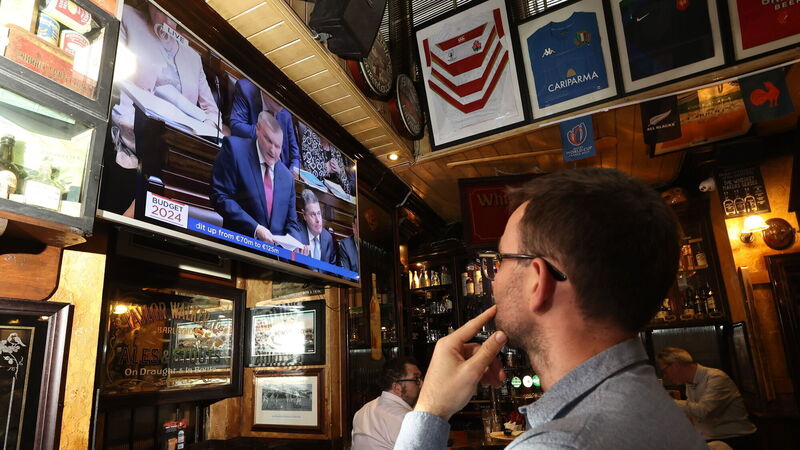USC cut, increased rent tax credit and new energy credits announced in €14bn budget

A man in Doheny & Nesbitt public house in Dublin watching Finance Minister Michael McGrath unveil Bugdet 2024. Picture: Liam McBurney/PA Wire
Finance Minister Michael McGrath and Public Expenditure Minister Paschal Donohoe have outlined the measures included in Budget 2024 with families, pensioners, workers, mortgage holders, and the self-employed all getting a boost.














